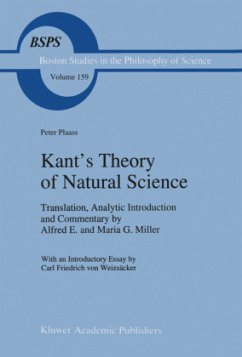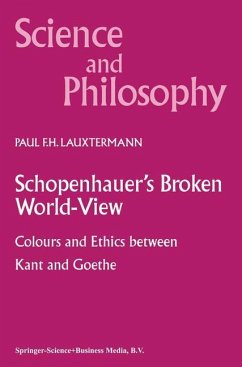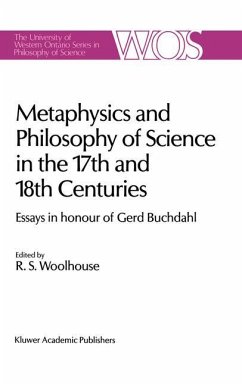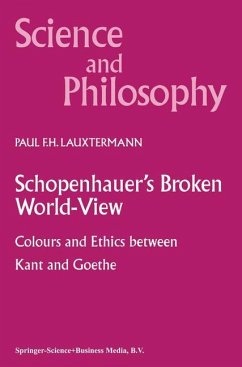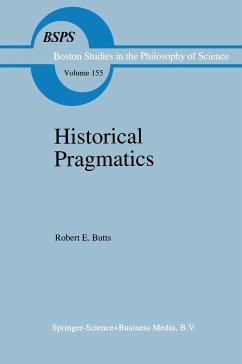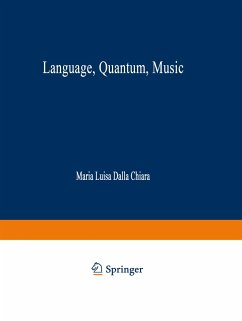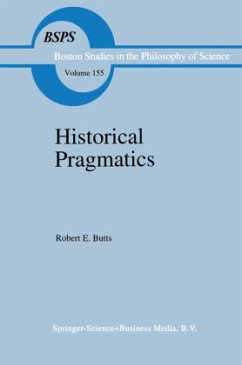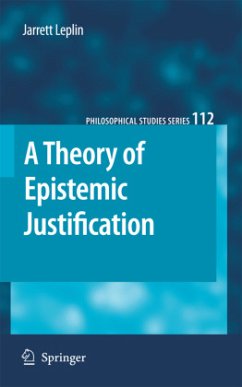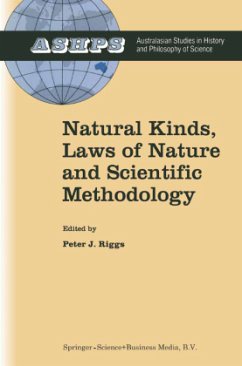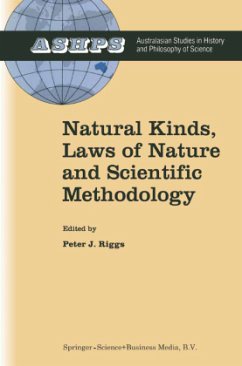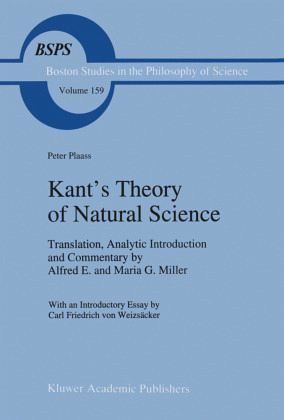
Kant's Theory of Natural Science
Versandkostenfrei!
Versandfertig in 6-10 Tagen
113,99 €
inkl. MwSt.
Weitere Ausgaben:

PAYBACK Punkte
57 °P sammeln!
Plaass's treatise stood at the beginning of a renewed wave of scholarship regarding Kant's Metaphysical Foundations of Natural Science (MF). Plaass argues that the MF represents an integral step in Kant's development between the two editions of the Critique of Pure Reason. The MF repeats the `Copernican turn', using the conditions of subjectivity to derive the metaphysical determinations of `matter' as the object of natural science with the new method called `metaphysical construction', which simultaneously grounds the mathematizability of physics. The translators provide background and analys...
Plaass's treatise stood at the beginning of a renewed wave of scholarship regarding Kant's Metaphysical Foundations of Natural Science (MF). Plaass argues that the MF represents an integral step in Kant's development between the two editions of the Critique of Pure Reason. The MF repeats the `Copernican turn', using the conditions of subjectivity to derive the metaphysical determinations of `matter' as the object of natural science with the new method called `metaphysical construction', which simultaneously grounds the mathematizability of physics. The translators provide background and analysis of Plaass's work, extend it to include the body of the MF and offer a variation on the analysis of the relationship between mathematics and metaphysics in the MF. They discuss its relevance for contemporary paradigm-dependency approaches to the philosophy of science and for philosophical hermeneutics. The book will be of interest to Kant specialists as well as to students of the philosophy of science in general.



